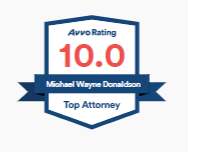DUI Defense in Southern California
If you or a loved one has been accused of a DUI, let us help. As trusted California DUI attorneys, we at Gressley & Donaldson LLP can provide qualified guidance. Contact our legal firm today to set up a consultation.
While being accused of a DUI is a serious matter, not every accusation is right. Cops can make mistakes; and breathalyzers and blood tests are often obtained in violation of the applicable California regulations and scientific standards. And in any case, you have a right to defend yourself against any charge you face.
If you have been arrested for DUI, it’s paramount you have an aggressive defense strategy. This article will cover the top strategies for building a strong DUI defense.

Our DUI Defense Services
If arrested for driving under the influence (DUI) in the Inland Empire, it’s crucial to seek immediate assistance from an Inland Empire DUI criminal defense lawyer. A skilled DUI attorney, especially one with experience in DUI accident cases, can offer advantageous guidance to work towards achieving the best possible outcome for your case.
Being arrested for DUI causing bodily injury in California necessitates retaining an Inland Empire DUI lawyer. With expertise in DUI accidents and California law, a proficient DUI accident lawyer can offer tailored legal representation to acheive a favorable result.
If facing charges for a Marijuana DUI, it’s crucial to seek legal assistance from an Inland Empire Marijuana DUI attorney. A skilled Marijuana DUI accident lawyer can provide specialized representation to navigate the complexities of your case and work towards the best possible outcome.
In the event of being arrested for a Drug DUI, it’s crucial to enlist the aid of an Inland Empire DUI Drug attorney. With the support of a DUI drug accident lawyer, you can navigate the legal process effectively and work towards achieving the best possible result for your case.
Enlisting the support of an Inland Empire Suspended License Lawyer is essential if you’re grappling with a DMV suspended license. With the assistance of a lawyer for a suspended licenses, you can work towards reinstating your driving privileges.
Understanding Your DUI Arrest and Rights
Getting arrested is one of the worst experiences imaginable. And yet, this experience can be 10 times worse if you don’t know what to expect and don’t understand your rights during the arrest.
The DUI arrest process begins with a traffic stop. Law enforcement may pull you over for a variety of reasons, such as erratic driving, a broken taillight, or stop you at a sobriety checkpoint. However, officers must have reasonable suspicion to stop you, meaning they observed behavior that suggests a possible violation of the law.
After the stop, if the officer suspects you are under the influence, they may ask you to perform field sobriety tests (FSTs) designed to evaluate your physical coordination and ability to follow instructions.
If the officer believes there is sufficient evidence of impairment, they may arrest you for DUI. You will be transported to a police station or jail for booking, where they will take your fingerprints and photograph.
“Okay, but what are my rights in all this?” you might be wondering. It’s very important to remember that you have rights, even when getting arrested. In particular, you have a right to:
- Not answer every question. When an officer asks, “Have you been drinking?” it’s tempting to explain yourself or try to minimize the situation. But here’s the thing—you’re not obligated to answer. Politely let them know you’re choosing to remain silent. Something as simple as, “I’d like to speak with my attorney before answering any questions,” can protect you from unintentionally saying something that could hurt your case later.
- Refuse field sobriety tests. Ever heard of those roadside tests where you’re asked to walk in a straight line or stand on one leg? These are called field sobriety tests, and in California, you’re not legally required to perform them. If you’re uncomfortable or unsure, you can politely decline. These tests are highly subjective, and even sober people can fail due to nervousness or other factors.
- Ask for an attorney. The moment you’re arrested, you have the right to legal representation. If the officer begins questioning you or pressing for details, you can calmly state that you’d like to speak with a lawyer first. This isn’t just a formality—it’s your right, and it ensures you have someone on your side who knows the law and how to protect you.
- Challenge the evidence. Think the breathalyzer or blood test results are unfair? Or maybe the officer didn’t follow proper procedures during your arrest? You have the right to challenge this evidence in court. Testing equipment isn’t perfect, and officers are human—they make mistakes. A skilled DUI defense lawyer can investigate these aspects and potentially have flawed evidence thrown out.
While you’re standing up for your rights, it’s just as important to stay calm and respectful. Even if the officer seems pushy or intimidating, staying polite helps avoid unnecessary conflict and keeps the focus on the facts.

Contact Us for Your Case Evaluation
Our dedicated team is here to provide the support and guidance you need, when you need it most.
DUI Test Refusal
In California, refusing a breath or blood test after being lawfully arrested for DUI can have serious consequences. Under the state’s implied consent law, drivers agree to chemical testing if they’re arrested on suspicion of driving under the influence. Refusal can lead to immediate penalties, including an administrative license suspension, fines, and potential restrictions on your driving privileges.
That said, the situation isn’t always black and white. If you refused a test, a skilled DUI defense attorney can examine whether law enforcement followed proper procedures. For instance, if the arrest wasn’t lawful, the implied consent law may not apply. Note: Officers must inform you of the consequences of refusal. If they didn’t, it could potentially impact your DUI defense strategy.
If your license has been revoked due to an alleged refusal of a breath or blood test, your DUI attorney can request a DMV hearing to challenge this suspension. If you need a DUI attorney, contact Gressley & Donaldson LLP today.

DUI With Child in Vehicle
One of the worst driving-related offenses you can get is a DUI with a minor in the car (VC 23572). This is because it’s actually an escalation of a DUI charge, meaning the consequences can be more severe. Depending on your case, you could even be charged with child endangerment and lose custody.
A good DUI lawyer will be able to assist you in presenting a strong case against your DUI charge, which can eliminate any penalties you may have incurred for having your child in the car. Reach out to Gressley & Donaldson LLP to speak with one of our DUI attorneys.
Under 21 DUI
If you are 21 years old and pulled over on suspicion of drinking and driving, you may face some serious repercussions. In California, the “Zero Tolerance” law stipulates that young drivers (21 and under) must have a BAC level of zero. This means that a young driver will face penalties regardless of impairment.
Drivers under the age of 21 found to have an amount of alcohol of .01% or greater can face a one-year driver’s license revocation by the Department of Motor Vehicles. Under 21 drivers should have a DUI lawyer schedule a DMV hearing to challenge any suspension against the under 21 driver’s license. No restricted licenses are available for under 21 drivers, but hardship licenses are issued in some instances.
Under 21 drivers with BACs between .01% – .04% can be cited for a violation of VC 23136, which is an infraction. Under 21 drivers with BACs between .05% – .07% can be cited for a misdemeanor violation of VC 23140, and potentially VC 23152(a) if they are impaired. Under 21 drivers with a BAC over .08% will be charged with DUI in violation of VC 23152(a) and (b) like an over 21 driver. Under 21 drivers can also be charged for driving under the influence of drugs if they are impaired.
In order to understand California’s under-21 DUI process better, book a consultation with one of Gressley & Donaldson LLP’s DUI lawyers.
DUI of Both Drugs & Alcohol
While it may seem that a DUI charge is straightforward, it can actually be quite complicated. For example, in California, you can still be charged with a DUI even if your BAC level is under the legal limit if the arresting officer also suspects drug use is contributing to impairment. This is considered a DUI of both drugs and alcohol (VC 23152 (g)).
While the penalties for a VC 23152 (g) are fairly similar to a DUI, the way in which it’s proved differs. The prosecution must prove the combined alcohol consumption and drug use impaired the driver’s ability to operate a vehicle safely
Due to the nature of this type of DUI, having a qualified lawyer beside you to argue against the charge is paramount. Gressley & Donaldson LLP can help. Speak with one of our DUI attorneys today.

Discuss Your Case Confidentially
Our teams experience helps us deliver the best results to navigate the various legal challenges of criminal defense.
DUI With Commercial Driver’s License
California law holds commercial drivers to a higher standard due to the responsibility of operating large or heavy vehicles. While the legal blood alcohol concentration (BAC) limit for most drivers is 0.08%, commercial drivers face stricter regulations—a BAC of 0.04% or higher can result in a DUI charge.
If convicted, a commercial driver risks immediate suspension of their CDL. A first-time DUI conviction can result in a one-year disqualification of your CDL, while a second conviction may cause you to lose your commercial license for life. Even if the DUI occurred while driving a personal vehicle, these penalties still apply to your commercial driving privileges.
A CDL DUI can be life-altering. If you or someone you know has been charged with a CDL license DUI, speak with one of Gressley & Donaldson LLP’s lawyers today to help resolve this issue.
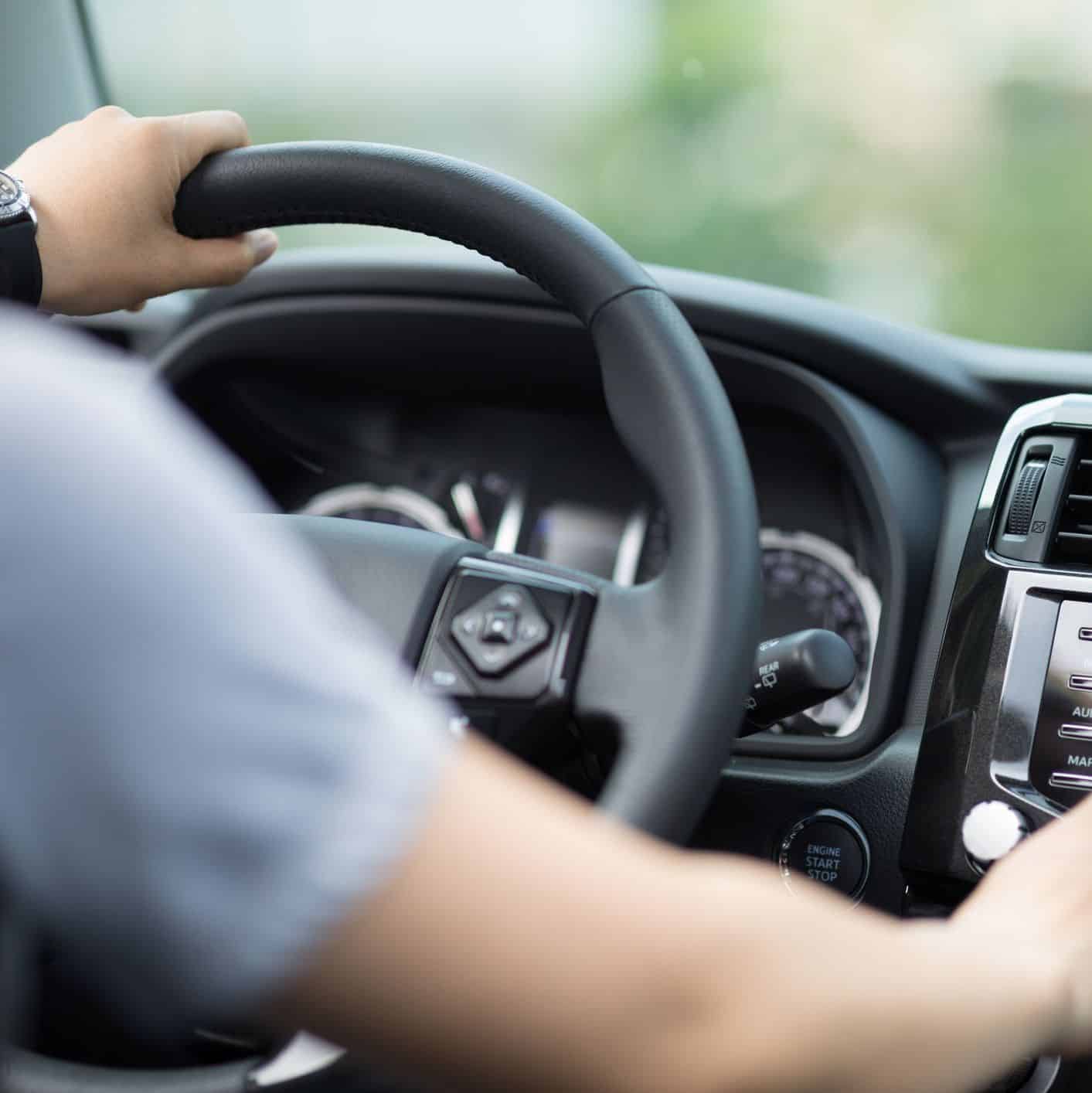
Watson Murder (DUI Murder Charges)
A Watson Murder, or DUI murder charge, is a far more serious crime than vehicular manslaughter. While vehicular manslaughter does not require that the impaired driver have malice or disregard for the potential dangerous consequences of driving under the influence, a Watson Murder charge requires such proof.
A Watson Murder claims that the impaired driver disregarded the potential consequences of their actions and/or has a history of impaired driving, thereby proving malicious intent. This charge is a second-degree murder resulting from a DUI.
If convicted of a Watson Murder or implied malice murder charge, the punishment is 15-years to life in state prison. Having a qualified DUI attorney beside you can be paramount in proving your innocence. Book a consultation appointment with Gressley & Donaldson LLP today.
Felony DUI Causing Injury
In California, a DUI becomes a felony if it results in serious injury to another person or there were other aggravating factors, under California Vehicle Code Section 23153. Unlike standard DUI charges, a felony DUI causing injury carries far more severe penalties due to the harm involved.
For a DUI to be charged as a felony under this law, the prosecution must prove:
- You were driving under the influence of alcohol or drugs;
- You broke a traffic law or acted negligently while driving; and
- Your actions caused serious injury to someone else or there were other aggravating factors.
If convicted, you could face up to three years in state prison, up to $5,000 in fines (plus court fees and restitution to the victim), and a suspension of driving privileges for up to five years. That’s not to mention that you would also be left with a permanent felony record that affects future employment and housing opportunities.
At Gressley & Donaldson LLP, we understand how life-changing these charges can be. We work diligently to protect your rights, challenge the evidence, and seek the best possible outcome for your case.
DUI of Drugs (DUID)
In California, it’s illegal to drive under the influence of both legal and illegal drugs. This means that, under VC 23152(F), if you are driving impaired due to a drug, regardless of prescription or legality, you can be charged with a DUI of drugs (DUID).
Where this charge differs from other DUIs is that no particular drug level is necessary to be charged. But, the prosecution must prove that your driving was impaired.
If you feel you have been wrongfully charged with a DUID, reach out to Gressley & Donaldson LLP to discuss the legal assistance you need.
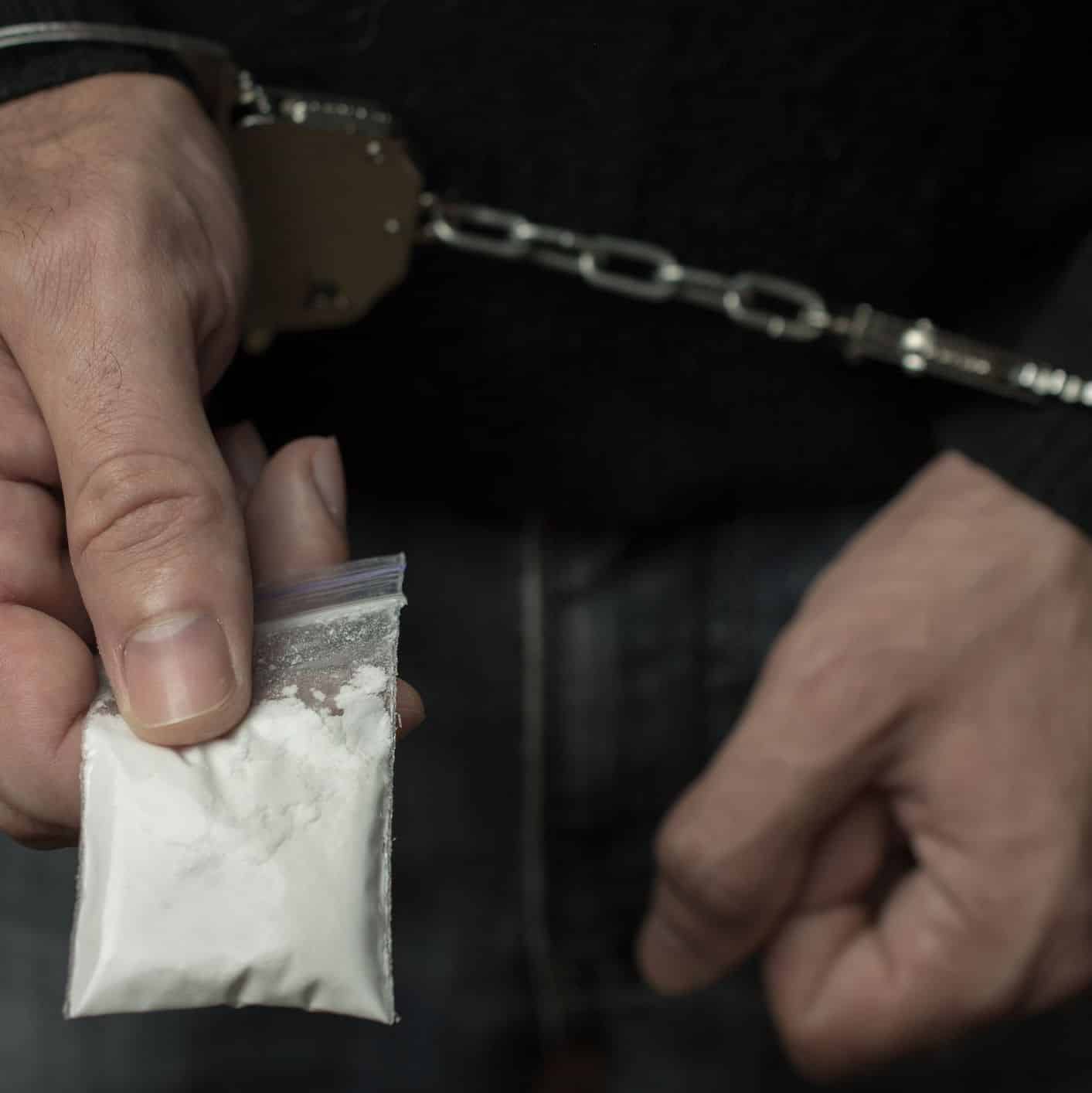
Vehicular Manslaughter While Intoxicated
Vehicular manslaughter in California while intoxicated (PC 191.5(b)) is defined as unlawful killing without malice. In other words, your driving was unintentionally responsible for a death. In order to prove a manslaughter DUI, the prosecution must show you either acted negligently and/or unlawfully, meaning you committed a misdemeanor or traffic infraction at the time of the accident.
If convicted, how long can you go to prison for vehicular manslaughter? Depending on your case, you could receive a 16-month, two-year, or four-year prison sentence.
Gross Vehicular Manslaughter While Intoxicated
Different from PC 191.5(b), the charge of gross vehicular manslaughter while intoxicated (PC 191.5(a)) implies you have acted egregiously and with serious recklessness. In order to be sentenced, the prosecution must prove that you committed both a DUI offense and another unlawful act, as well as:
- Acted with gross negligence
- Caused a traffic accident
- Caused the death of a human being
Gross vehicular manslaughter in California is considered a felony offense. Prison time ranges from 4 to 10 years. If you have been charged with PC 191.5(a), it’s critical you get the right legal assistance. Contact Gressley & Donaldson LLP now to set up a consultation.
Motion to Suppress Evidence PC 1538.5
What is a motion to suppress evidence? It’s a legal request to suppress evidence from presentation at trial. If you believe that your right to be free from unreasonable searches and/or seizures has been violated or information has been collected unlawfully, you have the right to request this motion (PC 1538.5). This motion exists to maintain your right to privacy.
So, what happens if a motion to suppress is granted? If granted, the evidence in question will be excluded from your trial.
Filing a motion to suppress evidence doesn’t have to be overwhelming with the right legal support. At Gressley & Donaldson LLP, our qualified lawyers are here to provide you with the guidance you need.

Discuss Your Case Confidentially
Our teams experience helps us deliver the best results to navigate the various legal challenges of criminal defense.
Driving Under the Combined Influence of Drugs & Alcohol
In California, driving under the combined influence of drugs and alcohol (VC 23152(g)) is grounds for a DUI charge, even if your BAC level is under 0.08%. Often, when someone is charged with a DUI of both alcohol and drugs, it’s because the arresting officer suspected drug impairment in addition to alcohol intoxication.
For driving under the combined influence of drugs and alcohol, penalties can be severe. Speak with a qualified DU attorney at Gressley & Donaldson LLP to get legal support.
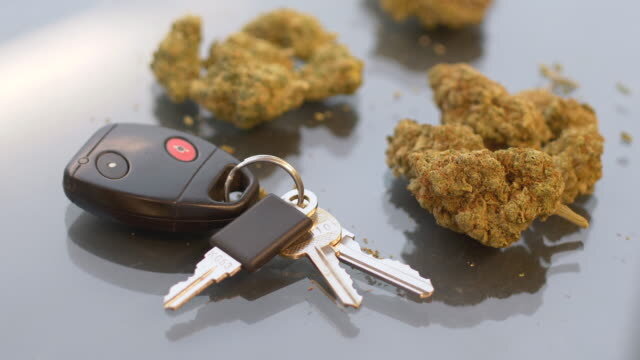
DMV License Suspension Defense
If you have been accused of driving with a suspended license, there are a few ways in which you can defend yourself. Perhaps the strongest way would be to hire a license suspension attorney. Otherwise, you can argue that you were unaware of the license suspension and, thus, unknowingly committed a crime.
Defending yourself in front of a DMV hearing officer can be intimidating. This is where Gressley & Donaldson LLP can help. Book a consultation through our website today.
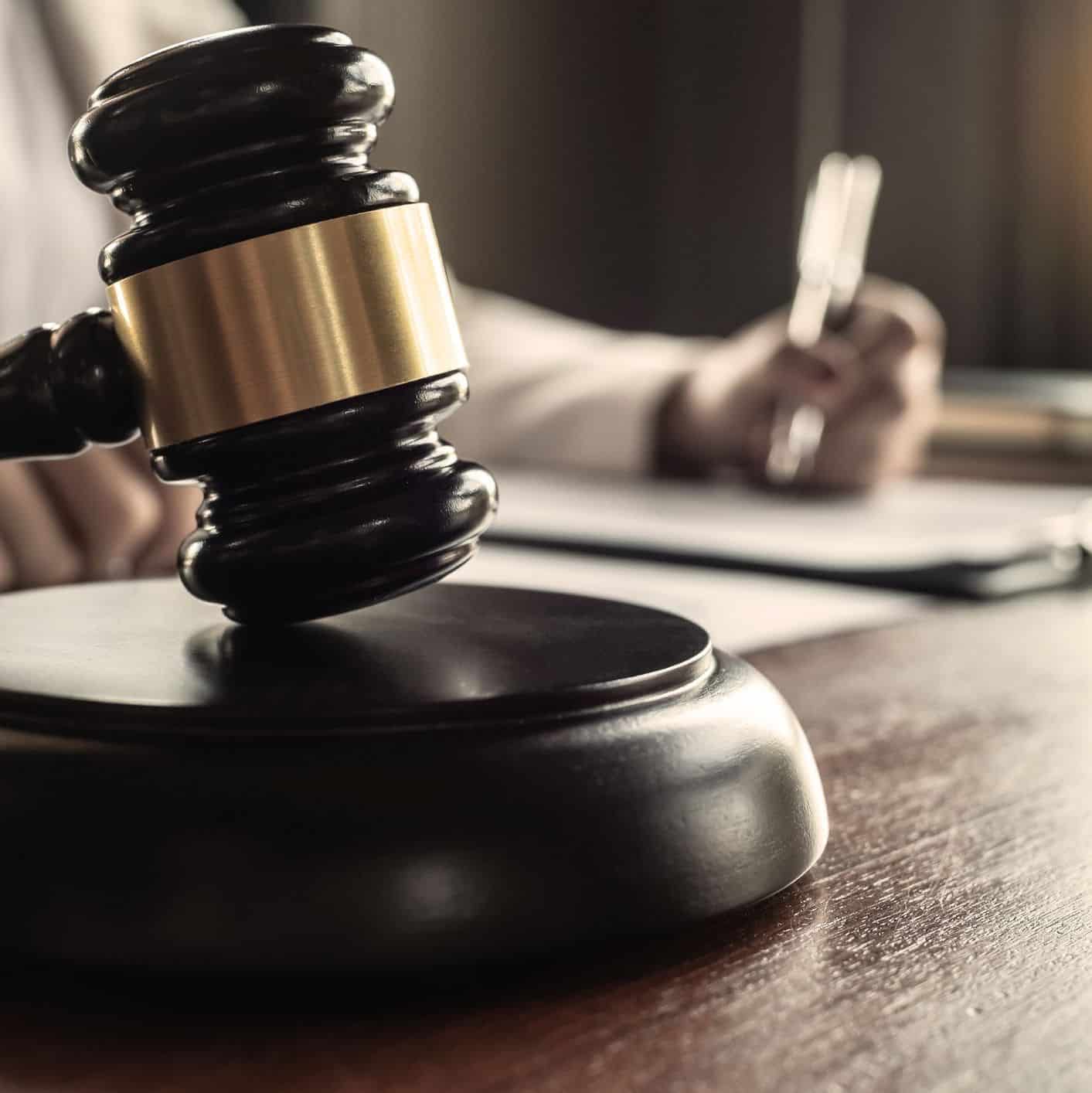
The DUI Process in Southern California
If this is the first time you or a loved one has been charged with a DUI, you might be wondering how the Southern California DUI process works. While the process varies from state to state, California follows the following process:
- DUI Stop: You are stopped by the police, typically for some traffic infraction like failing to maintain a lane in violation of Vehicle Code section 22107.
- DUI Investigation: The officer will typically ask you a series of questions, often referred to as pre-Field Sobriety Test questions, ask you to perform a series of Standardized Field Sobriety Tests, and request that you submit to a preliminary alcohol screening test. You are not required to answer any of these questions, to perform Standardized Field Sobriety Tests, or to submit to a pre-arrest breath test. In fact, you should not answer any questions or perform any of these tests.
- DUI Arrest: If an officer suspects you are driving under the influence of alcohol and/or with a BAC over .08%, the officer will arrest you. You will be cited for violating Vehicle Code section 23152, and given a date to appear in court. Additionally, the officer will likely confiscate your driver’s license, and give you a pink temporary driver’s license.
- Legal Representation: At this time, you should hire legal representation. It is always best to hire a local attorney, and an attorney that is a member of the California DUI Lawyers Association, or other reputable DUI defense lawyers association, such as the National College for DUI Defense.
- DMV Hearing: Within 10 days of your arrest, your California DUI Lawyer should request an administrative hearing with the DMV to argue your license suspension. If you do not request a DMV hearing, your license will likely be automatically suspended by the DMV approximately 30 days after your arrest. The suspension and/or revocation periods range from 4 months to 3 years, depending on the circumstances. If you are a commercial driver’s license holder (CDL), the DMV suspension will result in a revocation of your commercial driver’s license. Your private attorney should have significant experience doing DMV hearings.
- Court: Your DUI lawyer will generally appear for you in court. The goal in court will really depend on each and every client’s unique situation. Often, this can involve fighting for a reduced charge, such as a reckless driving charge. The best way to get a positive outcome in a DUI case before trial is through presenting mitigating evidence, fighting out any pretrial search & seizure issues, and possibly presenting problems with the DUI investigation and/or forensic science.
- Jury Trial: Very few criminal defense lawyers can say that have achieved successful jury verdicts in DUI cases. We are one of the few law firms that can. Although jury trials in DUI cases are rare, even for us, sometimes they are necessary. Our firm has taken countless DUI cases to trial, with great results.
Although the defenses at a trial are going to vary case by case, often the best defenses are:
(a) the police failed to follow proper NHTSA procedures in the DUI investigation;
(b) the police failed to follow proper procedures under Title 17 of the California Code of Regulations in administering any breath tests;
(c) the breath testing devices were not maintained in accordance with Title 17 of the California Code of Regulations;
(d) the forensic laboratory that analyzed your blood sample for alcohol used improper forensic science techniques in analyzing the sample (e.g. single column gas chromatography);
(e) the blood sample was not properly obtained, stored, preserved, and/or maintained in accordance with Title 17 of the California Code of Regulations and the relevant forensic science guidelines;
(f) the breath test overestimated your true BAC because it was taken during the absorption phase of alcohol metabolization;
(g) the evidence gathered by the police is insufficient to support any opinion that you were driving with a BAC of .08% or greater.
The DUI process in Southern California can be complex, which is why having legal support is crucial. With years of experience, Gressley & Donaldson LLP can help you defend yourself against DUI charges.
Building a Strong DUI Defense Strategy
There are a few strategies for building a strong DUI defense in Southern California. The first and best option is to hire a DUI attorney. Gressley & Donaldson LLP has years of experience helping people fight DUI charges.
Aside from professional legal support, you may have a few other defenses against your DUI. The details of your case will determine the proper defense, but the following are some common DUI defenses in California:
- The BAC test was administered correctly or maintained properly;
- The arresting officer did not follow protocol, thereby invalidating the DUI charge.
- Your BAC was within the legal limit prior to arrest but rose during testing, meaning that, while you were driving, you were under the legal limit.
- You were not driving the vehicle.
- You were not above the legal BAC limit; therefore, your driving was not impaired. In this case, poor driving does not equal drunkenness. The same can be said for physical signs of intoxication; just because your eyes were red does not mean you were drunk.
The best option is to hire a qualified DUI attorney to build a strong DUI defense in court. We at Gressley & Donaldson LLP can help with that. Schedule an appointment with one of our DUI attorneys and get the legal support you need.
The Importance of Hiring a California DUI Lawyer
When building your defense case against a DUI charge, it’s important you speak with a California DUI lawyer. Below are just a few reasons why you should consider hiring a California attorney:
- They know the right people: A local DUI attorney is more likely to know the arresting officers, the prosecutors, and the judge responsible for your case. Having this connection may end up being invaluable to your case.
- They know the local and state laws: Who better to handle your case than a lawyer well-versed in the local and state laws? A California DUI lawyer will have experience working with various jurisdiction-specific laws.
- They will likely have a strong reputation within the community: In California, there is a good chance a local DUI attorney has already built up a reputation within the community. Similar to knowing the right people, having an established reputation may prove indispensable in helping your case.
If you or a loved one has been charged with a DUI and lives in California, schedule an appointment with Gressley & Donaldson LLP to speak with one of our seasoned DUI lawyers.
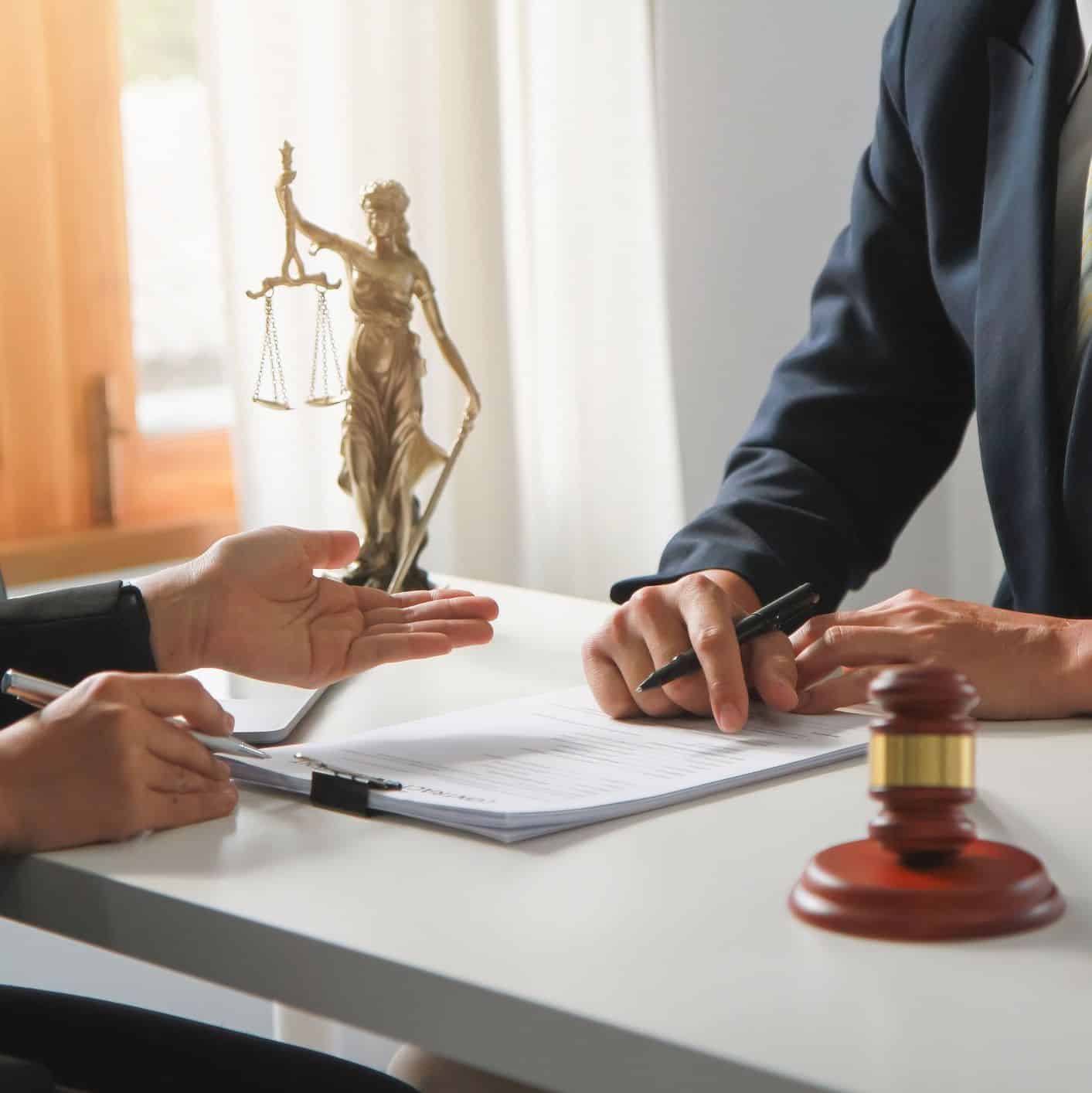
The DMV Process
In many DUI cases, the Department of Motor Vehicles (DMV) will be responsible for overseeing your case. If your DUI is more serious, then it may go to the criminal courts.
Below is the process for DMV oversight of a DUI charge. Keep in mind that this process begins after your arrest and license suspension.
- Request a DMV Hearing: You must request a DMV hearing 10 days after your arrest to fight your license suspension.
- DMV Hearing: A hearing officer conducts the DMV hearing, also known as an Administrative Per Se (APS) hearing. This hearing will determine if your license should be suspended or revoked.
- Outcome of DMV Hearing: Depending on your defense, you will either get your license back or have it suspended or revoked. The duration and severity of your punishment depend on your history.
Speak with a lawyer who might be able to represent you during your DMV hearing. Qualified lawyers will be able to succinctly articulate why your DUI is unfounded and, thus, unjust. Contact Gressley & Donaldson LLP today.
Protecting Your License and Freedom
At Gressley & Donaldson LLP, we believe in protecting your license and freedom. If you or a loved one has been charged with a DUI, it’s important to know that there are options.
One of the best things to do to protect your license is to speak with a DUI defense attorney. A seasoned lawyer will be able to advise you on the right course of action. Even if your case is only going to the DMV, having a lawyer to fight for you can make all the difference. Plus, DMV hearing officers still have to assess your defense.
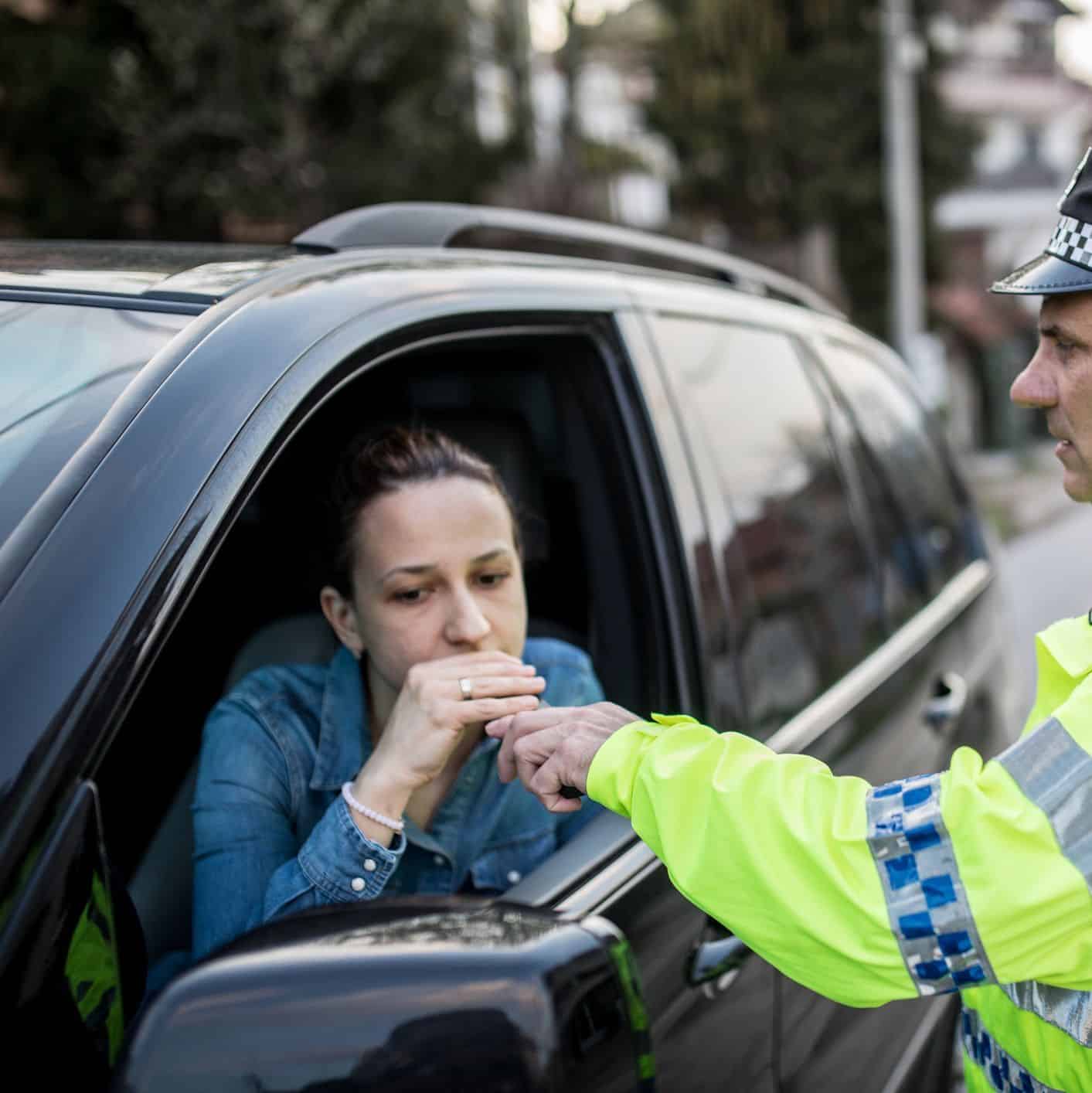

Discuss Your Case Confidentially
Our teams experience helps us deliver the best results to navigate the various legal challenges of criminal defense.
Frequently Asked Questions
Understandably, you may still have questions about your DUI charge. This is why we have included some commonly asked questions and their answers below.
Up to a 10-month license revocation, a 9-month DUI class, 6 months in the county jail, and five-years of summary probation.
The Riverside County District Attorney has a special prosecution unit for drug DUI charges. Hiring a firm that is familiar with the Riverside County District Attorney’s drug DUI prosecution unit is highly recommended.
Yes, by the California Highway Patrol, the Riverside County Sheriff’s Department, the Menifee Police Department, and the Murrieta Police Department. DUI checkpoints can be legal, assuming the various departments comply with the constitutional requirements for suspicionless stops. Our firm is very familiar with the constitutional requirements of DUI checkpoints, and how to challenge them.
The first and most important thing is to hire a lawyer. Our recommendation is to always hire a lawyer that is local, and knows the players. Second, our recommendation is to hire someone who has actual DUI specific knowledge. Our firm is made up of lawyers on the Board of Directors for the California DUI Lawyers Association, and regularly lectures lawyers across the state and country regarding cutting edge DUI defenses.
A first offense DUI conviction carries up to a 10-month license suspension. A second offense carries a 2-year license suspension. A third offense carries a 3-year license suspension.
Only for active duty or veterans of the military. Under Penal Code section 1001.80, servicemembers can be admitted into a diversion program for a DUI offense, which can result in dismissal of the charges and a sealing of the arrest record.
Refusing a pre-arrest preliminary alcohol screening test is legal. Refusing both a post-arrest breath and blood test after a lawful arrest can result in a draconian license suspension in certain circumstances.
DUI investigations typically consist of pre-field sobriety test questions, where officers ask questions about alcohol/drug consumption. Drivers are free to decline to answer these questions, and should. After questioning, officers often seek to administer the three test battery of Standardized Field Sobriety Tests, which are the Horizontal Gaze Nystagmus Test, the Walk & Turn, and the One Leg Stand. Following the administration of SFSTs, the officer may ask the subject to take a pre-arrest breath test. Then, if there is probable cause to support the arrest for DUI, the person will be arrested, and then asked to provide samples of their breath or blood.
Yes, Riverside County has a number of DMV approved DUI classes.
Each court case begins with an arraignment, and then typically has several pre-trial conferences before the case proceeds to trial or resolves. Pretrial motions challenging the stop by the police, or any searches and seizures should be heard before the trial, and can dramatically improve case outcomes.
A DUI conviction may result in termination or demotion for those that are already employed. If one is terminated as a result of the conviction, or if one is not employed but looking for employment, employers might decline to hire them due to the fact that they now have a criminal record, might be a liability, etc.
Yes, there are many local AA chapters, MADD programs, and others that allow others to come together and share their experiences.
Yes, by the California Highway Patrol, the Riverside County Sheriff’s Department, the Menifee Police Department, and the Murrieta Police Department. DUI checkpoints can be legal, assuming the various departments comply with the constitutional requirements for suspicionless stops. Our firm is very familiar with the constitutional requirements of DUI checkpoints, and how to challenge them.
Felony DUIs can only be charged in DUI cases involving injury or death, when a driver has a prior felony DUI conviction, or when a driver has a prior record of multiple DUI convictions.
Typically the same as over 21 drivers, although the DMV can impose a 1-year hard suspension on such drivers if they are over .01% at the time of driving.
Not on first offense DUIs.
Before trial, the best DUI defenses involve challenging the basis for a detention by the police, or the legality of the many searches and seizures that typically occur during the course of a DUI arrest. At trial, the defenses largely center on the type of test (breath or blood), and the quality of the investigation.
Out of state drivers can have a license suspension follow them back to their home state if they are not careful. Working with counsel in the client’s home state is imperative, and familiarity with California’s out of state waiver process is helpful.
Yes.
Yes. DUI convictions can be expunged after probation is terminated early or it normally expires. DUI drivers have to show some extraordinary reason for the court to grant the expungement.
A DUI conviction will permanently stay on anyone’s record, unless action is taken under Penal Code section 1203.4.
Yes, look at our case results.
A BAC level is an important fact in a DUI case. The higher the BAC, the more difficult the case to resolve favorably.
Yes, under the law in California, recidivists are eligible for much harsher penalties than first offenders.
Immediately. There are deadlines ticking that most people are unaware of.
This greatly increases the possible punishments. As the court can impose punishment not only for the new violation, but also for the probation violation. Additionally, DUI offenders typically are prohibited from driving with any alcohol in their blood.
DUI lawyer is an attorney whose practice is focused on impaired driving, alcohol and/or drugs, and related offenses.
This varies depending on the severity of the case. A lawyer hired to handle a DUI resulting in gross vehicular manslaughter will cost more than a DUI.
the only riverside county criminal defense, dUI defense and appeals firm awarded the “super lawyers” designation
Gressley & Donaldson is the only Criminal Defense, DUI defense, and Appeals firm in Riverside, Murrieta, and Temecula to be awarded a Super Lawyers designation. Super Lawyers only awards this designation to Criminal Defense and DUI attorneys that demonstrate excellence among their peers.
